Good provides push messaging, device management and security products for corporate mobile users, serving as an alternative to RIM's BlackBerry Enterprise Server. As such, Good supports mobile platforms outside of RIM's own, including Microsoft's Windows Mobile, Symbian, and adding relatively new support for iPhone and Android in December of 2009.
"As the leader in multi-platform enterprise mobility, security, and management," the report said, "Good has a clear view into enterprise adoption and support of mobile devices. Thousands of customers across every major industry and more than 40 of the Fortune 100 use Good Technology for enterprise mobility."
From May through September of last year, Good reported that Apple's iOS platform accounted for more than 50 percent of net new activations, followed by Android with nearly 30 percent, Windows Mobile with 15 percent, and Symbian devices representing less than five percent.
Apple's dominant standing in mobile enterprise adoption is particularly noteworthy because the iPhone was only available via AT&T in the US. With Verizon joining Apple as a US carrier, business adoption of the iPhone may begin to grow even faster.
iOS Good's most popular mobile platform in the enterprise
The report clarified that, "since RIM devices use only the BlackBerry Enterprise Server for corporate email access, Good does not have insight into BlackBerry handset activation trends and they are not reflected in this report."
Apple's iPhone 4, iPhone 3GS, iPhone 3G, and iPad accounted for the top four new device activations for the May through September period, followed by the Android-based Motorola's Droid X and Droid 2 and HTC Droid Incredible, and the Windows Mobile using HTC Cedar, Samsung 1637 and BlackJack 2.
In addition to Apple's iPhone and iPad, Good noted that it supports over 30 Android device models and over 100 mobile devices using Windows Mobile. "More than 40 percent of Good’s customers support both iOS and Android devices, and nearly 20 percent support devices on three or more mobile platforms," the company said.
Good noted that the iPad entered its top five device list in less than two months after first becoming available. "Interestingly," the company observed, "70 percent of these iPad users have not activated any other devices with Good, while 30 percent have activated both an iPad and least one other iOS or Android device.
Android growth stalls in June, Apple retains clear lead
Good noted that adoption of iOS peaked in May, when Apple's platform accounted for 60 percent of all new activations. Android grew rapidly in June, peaking at 36 percent of new enterprise activations. However, since then Android has slipped back down below 30 percent as Apple has stabilized at a 56 percent share of activations.
The dual punch of Apple's iPad and iPhone 4 launches this summer appear to have blunted the grown of Android in the enterprise, mirroring a similar phenomenon witnessed in Verizon's weakening Android device sales over the same period. While Good doesn't count RIM's BlackBerry platform, Verizon's rapidly collapsing sales of BlackBerry models may provide some context for its relative standing in business as well.
Microsoft's mobile platform continues to shrink, although the report notes, "we don’t expect to see Windows Mobile devices vanish from the rankings in the foreseeable future, due to their continued use by government and other enterprises that have invested in ruggedized or other 'purpose-built' Windows Mobile devices to support retail, field service, logistics, and transportation applications.
"Symbian remains fairly steady, but is less than 5 percent of all net activations, driven primarily by Good’s European customer base."
 Daniel Eran Dilger
Daniel Eran Dilger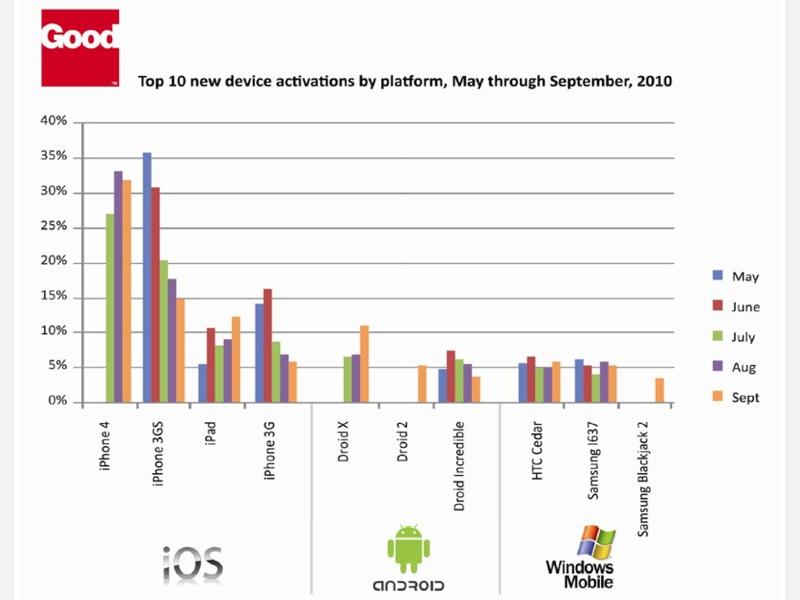
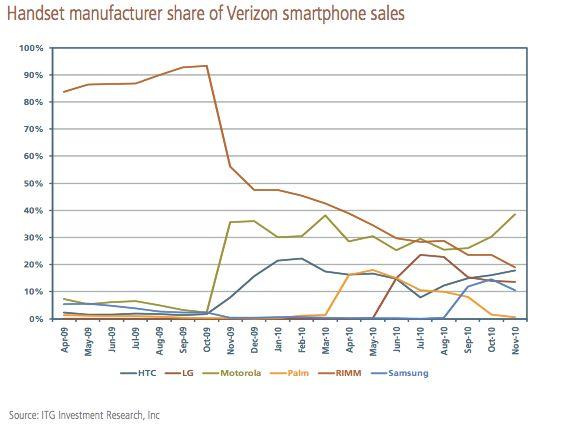
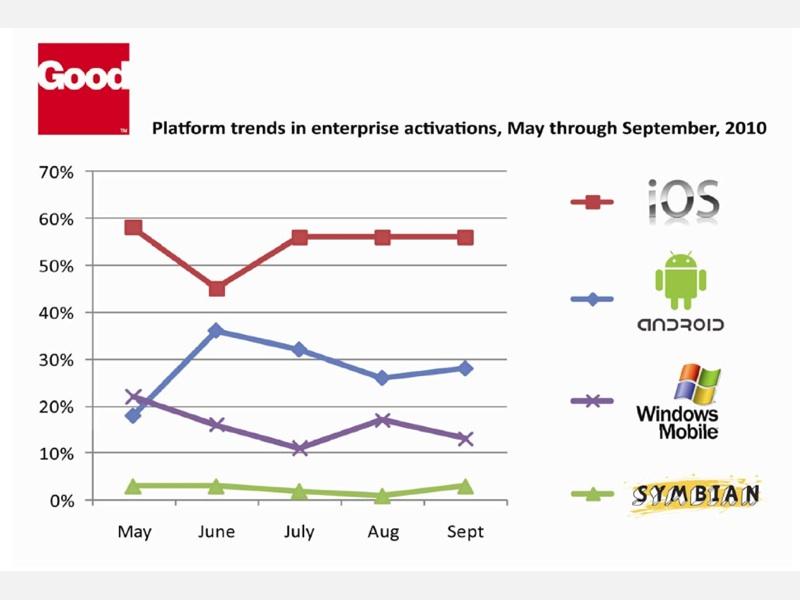














 William Gallagher
William Gallagher
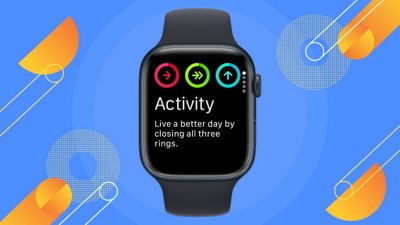
 Andrew Orr
Andrew Orr
 Christine McKee
Christine McKee
 Sponsored Content
Sponsored Content
 Wesley Hilliard
Wesley Hilliard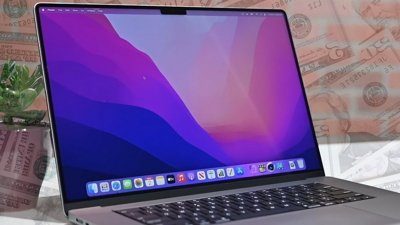
 AppleInsider Staff
AppleInsider Staff

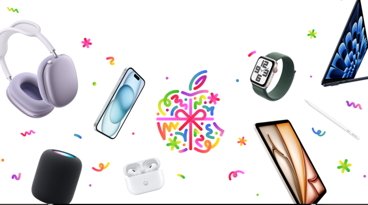







37 Comments
Are we sure this is a good thing? The kind of enterprise features that devices get when they sell well to business are the same kind of features that give the everyday consumer the sh*ts. If you want to make a great product you have to chose one market or the other (though a merely good product can be successful in both).
One thing I've always wondered. Why does the Android logo look like a robot? Androids are supposed to look like humans, not robots, George Lucas's droids notwithstanding.
Are we sure this is a good thing? The kind of enterprise features that devices get when they sell well to business are the same kind of features that give the everyday consumer the sh*ts. If you want to make a great product you have to chose one market or the other (though a merely good product can be successful in both).
How did you conclude that the iPhone features are a pain for users considering the tens of millions of iPhones sold all over the globe to happy consumers?
Oh wait... you must mean the very small, vocal, tech-head minority that feel the need to access every conceivable type of system resource on their phone and micro-manage it, without taking into consideration Apple's successful reasoning to hide all that complexity from those tens of millions of consumers?
Face it. That same simplicity and closed environment is what also makes the iPhone desirable for the enterprise as well. Since you can't load any app / malware on it unless it's through the App store (public or custom enterprise app), it's a great way to ensure better security and stability than the wild-west Android free-for-all.
Have folks not learned enough from the Windows mess?
Hello guys; I am shanu here, I have seeing a new iphone.Its realy very nice.So I want bought.Please someone provide some prises list.
Did they teach you about Google at Internet University? It can definitely find some...prises list.
Hello guys; I am shanu here, I have seeing a new iphone.Its realy very nice.So I want bought.Please someone provide some prises list.
Good place to start ...
http://store.apple.com/us